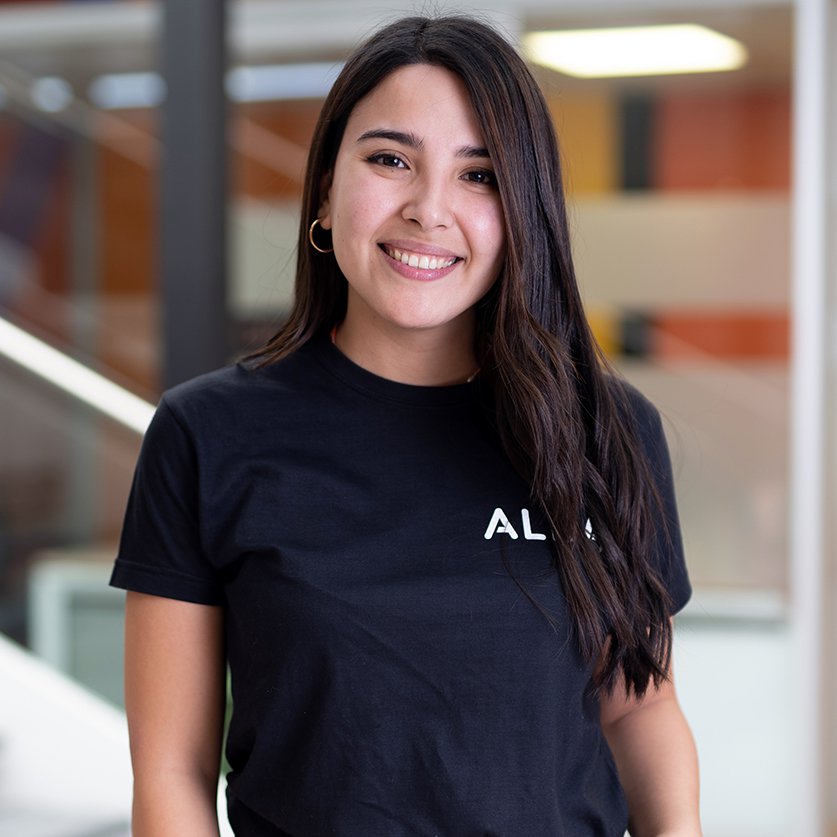Strokes are one of the leading causes of death in the Americas, according to the World
Health Organization (WHO). Surviving a stroke does not guarantee a return to
normal life. In fact, according to Chilean NGO IRV, around 30% of stroke
survivors are unable to return to work within the first year and require
assistance with basic daily activities such as walking, eating, or dressing.
Pamela
Salazar (Chile, 31) is the founder of uMov, a start-up created to address the
limitations of traditional therapy by integrating advanced technology and
personalized care in the treatment of motor weakness and cognitive damage.
uMov’s first project is called ALBA, a tech-based solution consisting of a
portable and ergonomic device, an interactive app integrated into the device,
and a data analytics platform.
This
solution allows patients to perform guided rehabilitation sessions
independently, while the device collects real-time data on their movements.
ALBA not only promotes early rehabilitation, but also provides objective data
to medical professionals, improving the precision and effectiveness of
treatment. The platform includes software for data management and analysis,
enabling detailed progress tracking and facilitating informed clinical
decisions.
“ALBA aims
to address the lack of access to high-quality motor and cognitive
rehabilitation—especially in regions with limited medical resources. In Latin
America, many people who suffer from strokes or other injuries do not receive
the rehabilitation they need due to a shortage of specialists and specialized
centers. On top of that, traditional therapies can be monotonous and
demotivating for patients. ALBA offers an accessible and efficient solution
that allows patients to do therapy at home, under the remote supervision of a
professional,” explains Salazar.
While
studying Industrial Civil Engineering at the Universidad del Desarrollo
(Chile), Pamela met a woman who had suffered a stroke and developed a permanent
disability due to a lack of timely and adequate rehabilitation. “That case
made me realize the urgent need for innovative solutions to make rehabilitation
more accessible and effective. It became the catalyst for developing ALBA and
improving the quality of life for people facing similar challenges,” she says.
To date,
over 500 rehabilitation sessions have been conducted with ALBA, and the
solution is currently being used in three healthcare centers. Although
initially designed for patients with strokes (CVA) and traumatic brain injuries
(TBI), its use has expanded to include other conditions, such as Autism Spectrum
Disorder (ASD), and has proven effective for children as young as six years old.
In the centers using ALBA, healthcare professionals have seen an increase in
efficiency, allowing them to treat more patients simultaneously and boost
capacity by 30%.
Salazar
hopes ALBA will soon reach Mexico. “We see the
potential to expand the platform’s capabilities to cover a wider range of
rehabilitation needs, including advanced cognitive rehabilitation,” she says. “We’re
confident that with perseverance and focus, ALBA will continue to positively
impact the lives of many patients.”
Since its
inception, ALBA has received multiple awards. This year, the project was
selected as a winner of the 2024 Hub Apta acceleration program and the Know Hub
program, which will support its soft landing in Mexico. Last year, the project
won the Santander Global Award, and in 2021, it received the AVONNI National
Innovation Award. Salazar has been active in the innovation space for years,
winning the Fondos IdeasX in 2019 and Fondos Jump in 2018. She is now one of
MIT Technology Review in Spanish 35 Innovators Under 35.




